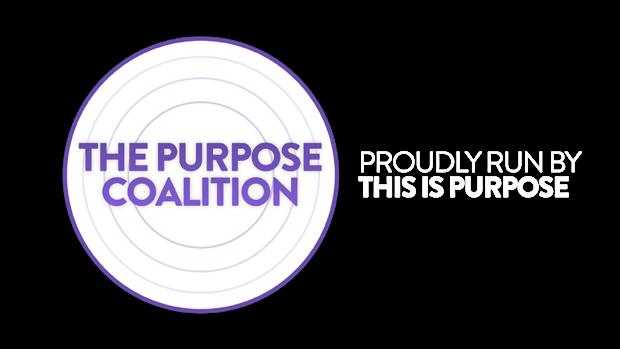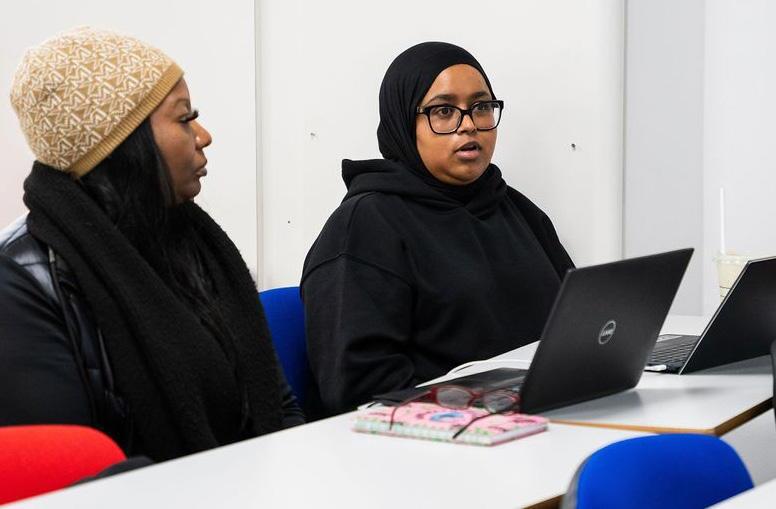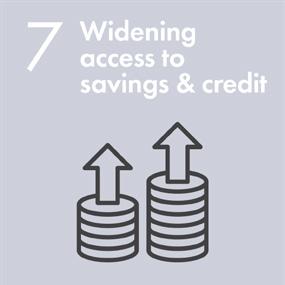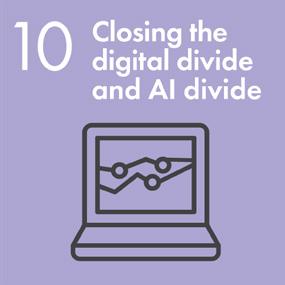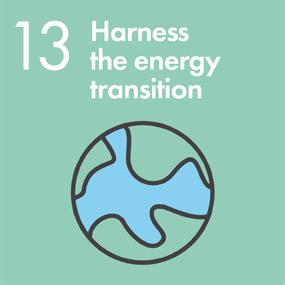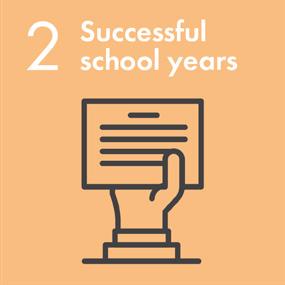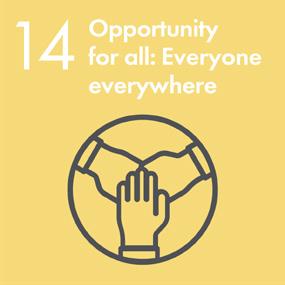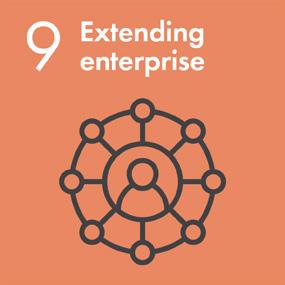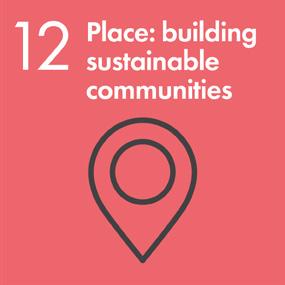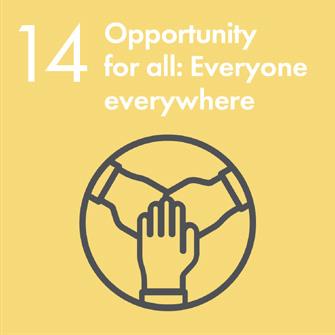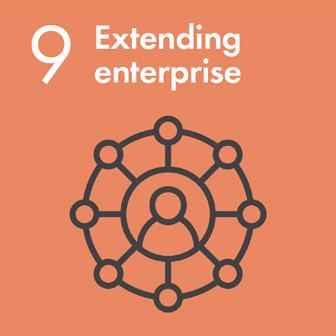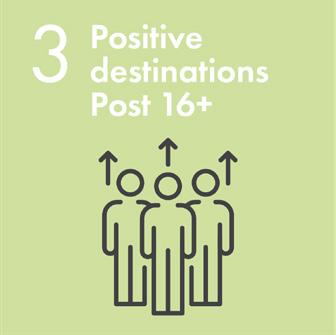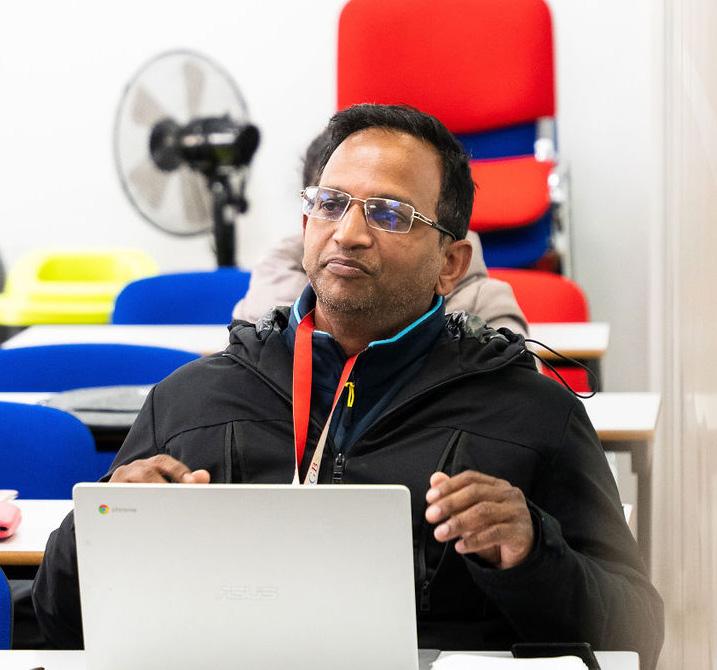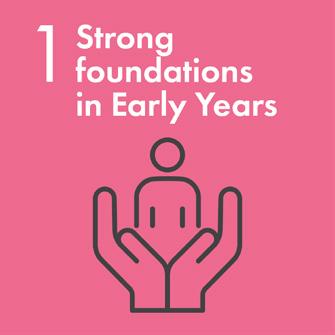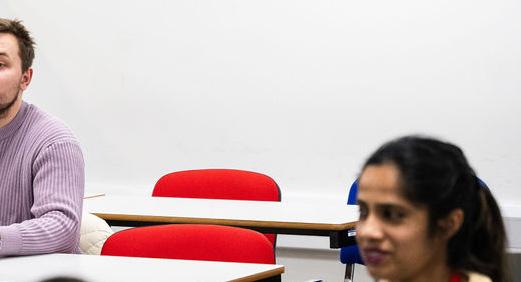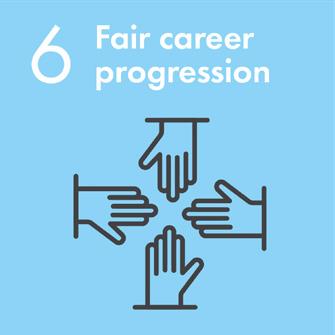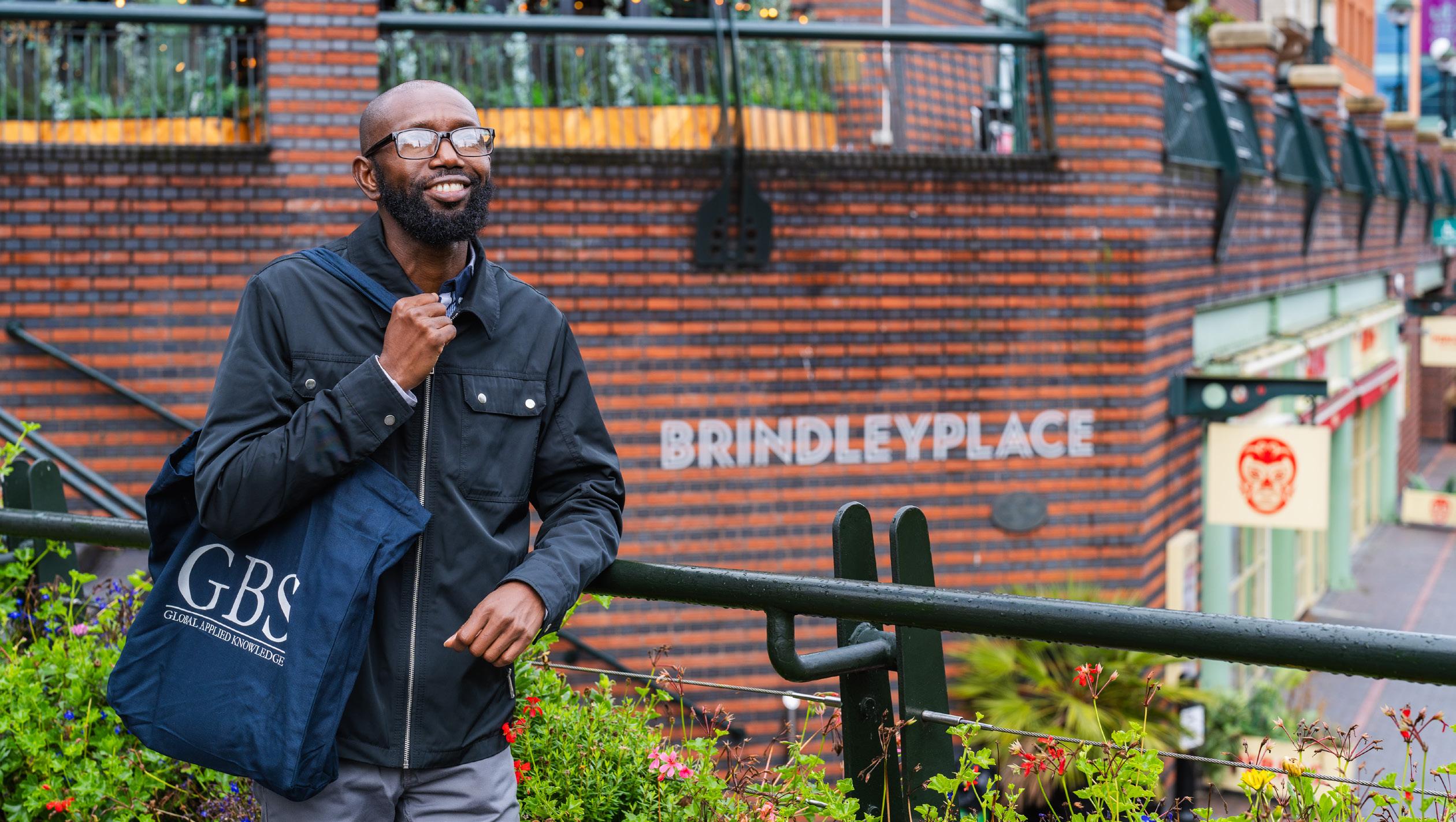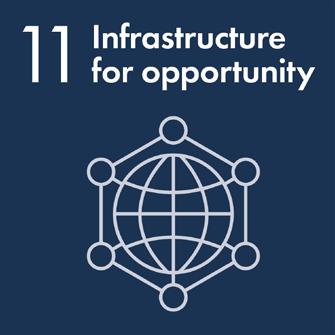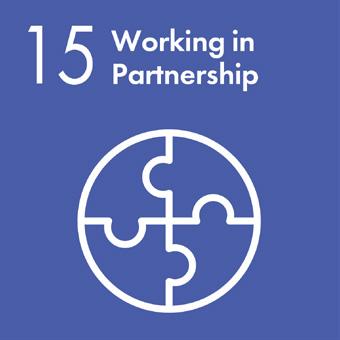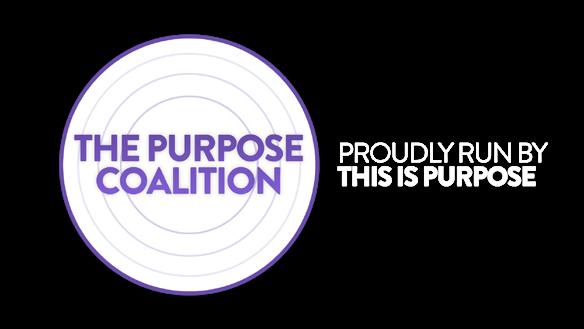1: An Overview of GEDU and its Purpose
1.1. An Introduction to GEDU
GEDU is an education organisation with more than 60,000 students globally, dedicated to breaking down traditional barriers to education. Through a wide range of flexible and affordable in-person and online courses, GEDU strives to eliminate financial and geographical barriers to learning by offering individuals accessible educational opportunities that will enhance their career aspirations.
Along with its network of partner institutions, GEDU works collaboratively with businesses and organisations to ensure that its programmes are relevant to its students’ future job prospects and aspirations, addressing skills shortages and ultimately providing an economic boost at local, national and international levels.
GEDU supports its students throughout their education journey, from providing university admissions advice to preparing individuals for successful careers. GEDU has an impressive international reputation, and has some major players within its portfolio, like the tripleaccredited ICN Business School, which sits within
the top one per cent of business schools globally. Schiller International University, which allows students to complete each year of their degree in a different country, also sits within the group. GEDU also works with its students to facilitate overseas study experiences and exchanges to ensure that students meet visa and language test requirements.
One of GEDU’s key brands is the UK-based higher education provider GBS (Global Banking School), which offers a wide range of sector-relevant courses to more than 35,000 students across London, Manchester, Birmingham and Leeds. GBS’ regional locations means that 38 million people - more than half the UK population - live within an hour’s travel of a GBS campus, expanding opportunities in finance, business, healthcare and construction education locally and driving fairer access to skills and opportunities.
The organisation has created a model of working built around the students who are not able to access more typical Higher Education. This is seen in GBS’ structure, its recruitment processes, teaching methods, support networks and engagement processes.
GBS strongly contributes to three of the government’s five key Missions, specifically those which aim to ‘Kickstart economic growth’, ‘Build an NHS fit for the future’ and ‘Breaking down barriers to opportunity’:
• Kickstart economic growth – GBS develops programmes in areas which will contribute to the UK economy. For example, through GBS’ Construction Management degree they are working to address skills shortages across the sector and more students into managementlevel positions.
• Apprenticeships delivered by MetaGedu Apprenticeships, part of GEDU, are vital to supporting economic prosperity.
• Build an NHS fit for the future – The NHS and our social care sector face deep challenges, particularly when it comes to its workforce. GBS is playing a key role in tackling these challenges through Higher National Diploma (HND) and BSc in Health, Wellbeing and Social Care which allow students to upskill in these key areas. GBS believes its accessible approach can open new pathways into healthcare.
• Breaking down barriers to opportunity – GBS extends high-quality learning opportunities to communities who would otherwise miss out.
By giving people access to education through non-traditional routes, GBS empowers students to take the next step in their career, and ultimately enables social mobility across the UK.
1.2. GEDU’s Purpose
GEDU’s mission is changing lives through education & making fundamental differences in living standards & access to learning globally
GEDU has a clear set of values that guide it in this global mission:
• We care for our students
• We care for each other
• We always want to learn and improve
• We want to make a significant contribution to our communities
• We value entrepreneurial spirit
• We appreciate and reward high performance
• We cherish diversity
1. We care for our students
Across all of GEDU’s partner organisations, students come first. Everything is built around them and their learning experiences. Campuses and courses need to be affordable and accessible. The release of the 2024 National Student Survey (NSS) by the Office for Students (OfS) showed GBS eclipsed the sector average across almost all categories. Most notably, 93% of students were satisfied in the ‘teaching on my course’ category. This is a very high level of satisfaction and 7% above the average for the Higher Education sector as a whole.
2. We care for each other GEDU has thousands of employees globally, working across dozens of cross functional teams to deliver on the aspirations of the organisation. This requires a positive culture from the top, down, to ensure all employees feel valued and inspired to dedicate themselves fully to the organisational goals.
3. We always want to learn and improve
All partner organisations that form the GEDU Group communicate regularly with staff and students to ensure all are getting the best learning and working experience possible. Processes and systems are reviewed regularly meaning all brands adapt quickly and keep pace with industry standards.
The organisations that make up GEDU are built on a foundation of the highest quality which includes a commitment to continually listening to student feedback, and finding ways to improve.
GEDU has hundreds of employees globally, working across dozens of cross functional teams to deliver on the aspirations of the organisation.
4. We want to make a significant contribution to our communities
Across 12 countries, it’s critical GEDU’s organisations have a real and positive impact on their respective communities. By providing high-quality higher education to those from less fortunate backgrounds, students are enabled to start their own businesses, earn more money and ultimately have a tangible impact on the economy of their local community. This is key to the core mission of changing lives through education. It’s what drives social mobility and leaves a lasting impact in years to come.
5. We value entrepreneurial spirit
The entrepreneurial spirit is integral to the work of GBS. Several programmes directly teach entrepreneurship and many students already run their own business or aspire to do so. GBS makes a number of specific interventions to support entrepreneurial students including employing staff who have built their own business and availability of support and capital for entrepreneurs. This entrepreneurial spirit also impacts staff culture. GBS has a track record of adapting very quickly in response to any opportunity to improve the chances of students.
In addition this spirit informs the way that GBS work, resulting in a track record of swift and effective response to any perceived weakness of opportunity to improve.
6. We appreciate and reward high performance
GBS, and GEDU, has a culture of commitment to high performance. Their approach provides each person with measurable KPIs which enable fair reward and career progression based on objective measures of success. There is a wide diversity within the staff cohort as the approach attracts staff committed to student success.
7. We cherish diversity
The GBS student body in the UK is diverse, but all students are UK residents. They are people who have chosen the UK as a place to build their lives and raise their families. Many GBS students are first or second generation migrants and still living within their communities. The GBS commitment to creating opportunities for our students has a wider benefit of building sustainable communities integrated into life in the UK.
3. Mapping GEDU’s Activity Against the Purpose Goals
3.1 Opportunity for All: Everyone Everywhere
Creating a level playing field of opportunity for all can fully unleash Britain’s potential for the first time.
3.1.1 Widening Access to Higher Education
Widening access to higher education to people and communities that traditionally face barriers is at the heart of GBS’ work. The institution contributes strongly towards achieving social mobility by providing a course offering that caters to the needs of under-represented groups within Higher Education, such as those who have families or caring responsibilities, work full or part-time, are mature students or come from deprived areas or under-represented communities.
GBS also understands that enabling access to Higher Education is only the first step in the broader student journey. Students need to be looked after through the life of their academic journey, to ensure they complete their studies and ultimately go on to have a positive impact on their families and communities as a result. This is what informs the GBS model of operation.
GBS’ campuses are in areas that have been specifically chosen to serve populations from deprived areas and with larger proportions of people from ethnic minorities, where participation in higher education is lower. With campuses in Leeds, Birmingham, Manchester and East and West London, GBS creates educational opportunities on the doorsteps of those who traditionally have experienced barriers to accessing further education.
GBS, and GEDU more broadly, operate as a meritocracy. This goes for both staff and students. Anyone, from any age group, or ethnic background, has the opportunity to make something of themselves either as a student or a member of staff.
The ethnicity of GBS students shows its ability to reach a broad range of communities within the UK. All students are UK residents but 24% report their ethnicity as Asian, 17% Black, 5% Mixed or Multiple ethnicities, 11% British White and 38% Other White.
3.2 Extending Enterprise
Bringing opportunities to communities and having more jobs on the doorstep is often discussed in terms of inward investment and promoting organisations investing in places that have traditionally been social mobility coldspots. However, enabling people and communities to create their own jobs is perhaps the most powerful way of really driving opportunity on the doorstep.
Higher education providers play an important role in not only linking in with businesses - sharing expertise and resources - but also in the fostering of entrepreneurship amongst students and the immediate community.
Each campus has been welcomed by the local community, as they drive job creation and economic activity.
GBS remains actively engaged with councils and governments at all levels, to understand how the business can adapt to better serve its communities and sustain this level of growth long into the future.
3.2.1 Entrepreneurship
Many students who have innovative business ideas and wish to start up their own business are all too often prevented from doing so by a lack of knowledge about the practicalities of starting a new enterprise. As a result of GBS’ entrepreneurial spirit, it enhances the employability of its students.
Entrepreneurial spirit is at the heart of GBS and is one of the major driving forces behind its UK employment.
All GBS campuses are served by an Entrepreneurship Team which is dedicated to providing students, as well as GBS graduates, with practical advice about starting and growing their own business. The team works with students to explore their ideas and create a brand and business plan so that they can make their business ideas into a reality.
The Entrepreneurship Team also support GBS students to develop vital employability and entrepreneurial skills which will increase students’ confidence and help them progress in their future careers in business.
While traditional providers of higher education have entrepreneurship programmes focused on ideation, GBS works differently.
GBS will still help a student take their idea from concept to reality, but because its student cohort is mature-age, over half of these students already have jobs, and roughly 25 per cent of them already have a second stream of income established.
To cater to this, the GBS entrepreneurship team focuses more on scaling these existing enterprises up, rather than establishing them from an idea. These students already have some revenue coming in from their business, and the entrepreneurship team guides them on the next practical steps.
Another example that shows how GBS operates differently to cater to the needs of its students can be seen in its Construction Management Course.
Of the students studying this course, roughly half are self-employed and working as plumbers, electricians and labourers. This means they are already earning an above-average income. When they finish the course and want to make the leap into Construction Management, they will be more entry level initially, which means their income will be less.
To ensure they still pursue a career in construction management and ultimately work to address skills shortages in the sector, GBS runs a series of seminars relating to construction and property, giving students a better understanding of how they can maximise secondary sources of income to benefit them and their families long-term as company directors.
3.2.2 Enterprise Hub
In 2023, GBS launched its Enterprise Hub. The hub empowers students to bring their business ideas to life with intensive one-to-one support from established mentors.
The Enterprise Hub is intended to foster an environment of collaboration between students as they work to explore and launch their business ideas.
As part of this initiative, students are given guidance on sales, marketing, operations, funding and overall strategy. Funding is also available to help students grow their businesses.
This has seen students launch multiple businesses and upscale existing enterprises. This entrepreneurial offering is critical when serving such a diverse student cohort with varying aspirations at the different stages of their lives.
The hub has a variety of other functions for students who want to utilize it. There are some students who choose to use the space to run business networking events. This allows them to build their own personal networks, and enable other students to do the same.
Other students choose to utilize the space as an office. They are able to run their business remotely from the hub, especially during periods where they need to avoid external distractions.
GBS now has a physical enterprise hub across all its campuses.
Case Studies
Mihail-Emanuel Antoniei
Runs a digital agency and has 2 clients. The entrepreneurship team discussed a digital outreach campaign based on Mihail’s existing success to attract clients. This was backed up with a robust content strategy, focusing on email and social media outreach. The initial target is to double revenues in 2025.
Anne Marie Niang
Invested in an external drop-shipping course, but there were not enough details to create a viable business from the materials given. The entrepreneurship team discussed various options around products and narrowed it down to two items.
Anne Marie is a celebrity in Dakar, Senegal due to her modelling past and her sister being a famous women’s basketball player in the UK. Between them, they have 95,000 Instagram followers. This network has been utilized to market the products. The hub allowed her to work through the next steps, from sourcing, to market list growth, and the initial sales. Anne Marie is set to launch, probably in cosmetics, and looking to create a Senegalese-based business for phase one before launching in the UK.
Mihaela Nastaca
Mihaela’s husband is a food engineer; Mihaela is the marketeer. Diane and Mark from the Enterprise Team organised two events, one in Leeds and one in London during February of 2025. 203 students and staff attended and bought food. The events generated a valuable £1,800 of revenue whilst also conducting market research and capturing a list of customers who want to repeat purchase from them. The food was so well received that GBS is looking to arrange more food tasting events with them.
Jason James
Jason runs a welding company from premises South West of Birmingham. His revenues were circa £12-£14,000. The hub helped him identify two niche areas to focus on (gate repair and garden ornament – both are B2C). The hub revealed that Jason is often too busy to take phone calls. This prompted him to hire his ex-wife to come and work in the business. This increased sales by an estimated £1,200 per month. A campaign was launched to target past customers, and the signs are that Jason will be running at £40-50k revenues by the end of Q3, 2025.
3.2.3 BA(Hons) Global Business and Entrepreneurship with Foundation Year course
GBS UK offers a BA (Hons) Global Business and Entrepreneurship with Foundation Year course, designed to equip students with the skills they need to realise their entrepreneurial potential.
The foundation year is essential to enable students who have not been in education for many years to learn skills and behaviours which will be essential to academic success.
This first year puts a keen focus on the basic principles of entrepreneurship and new venture management and provides students with unique learning pathways that can be explored during the final year.
During the course, students learn how to fine-tune their own business ideas to make them more attainable and are taught to recognise potentially lucrative opportunities and how to seize on this for their own gain.
The course emphasises a hands-on approach to learning, with real-world scenarios regularly played out in the classroom, enhancing students’ understanding of how strategy, tactics and innovation are valued in different business models. Students are also supported with face-to-face academic, career, financial and well-being support from the GBS welfare team.
3.3 Positive Destinations Post-16
Every young person should have the choice to pursue higher education, employment or training upon turning 16, regardless of their background or financial circumstances.
While young people becoming the first in their family to go to university is becoming an increasingly common occurrence, there are still numerous barriers which lead people to rule out university and further education as an option for them because of their individual circumstances.
3.3.1
Course Provision
GBS provides students with the choice of a wide range of courses and training programmes, from business management and finance to healthcare. Campuses are located in major cities across the UK to ensure that prospective students do not feel deterred from pursuing further education because of their individual circumstances.
Courses are designed to be as flexible and accessible as possible which allows students, the majority of whom are mature, to balance their studies with work and with the demands of their families. This is done through a series of delivery models to fit around students’ lives. By offering courses that can fit around the schedules and commitments of its students, GBS enables people to develop skills to advance their careers regardless of their personal circumstances.
GBS works to enable access through the following features:
• Structured timetable - days, evenings or weekends – provide a study pattern that fits in with work and families.
• Commitment to a set timetable for four years - students don’t need to adapt to changes or renegotiate other commitments.
• Students learn with the same group throughout their studies
• Campuses are close to good transport links.
• Multiple intakes throughout the year means that students are not bound to follow a traditional academic year.
• There is consistency of student experience across all campuses.
• Student services are designed to be accessible and make it easy for students to get the help they need, when they need it.
3.3.2
Apprenticeships
Apprenticeships offer an alternative way to grow talent and develop a highly skilled workforce, and GEDU’s MetaGedu Apprenticeships provide an accessible pathway to developing skills and pursuing education.
MetaGedu’s apprenticeship programmes combine knowledge and skills into a work-based learning curriculum that fits with the needs of employers. Apprentices benefit from a high-quality learning experience which equips them for the world of work, with apprenticeship opportunities based throughout the country to ensure that geographic barriers to opportunity are eliminated.
Flexibility is one of GEDU’s key areas of focus when creating educational opportunities for its students, and by offering apprenticeship programmes in addition to its more traditional courses, the organisation ensures that students have the opportunity to pursue the right further or higher education path for their specific needs. Another key element to this is that MetaGedu apprentices can learn from their teachers either at their workplace, or online, allowing them to complete their course in a manner that suits them best.
3.3.3
Student Satisfaction
The Office for Students’ 2024 National Student Survey (NSS) 2024 clearly demonstrates that GBS is providing a positive educational experience for the majority of its students, with 93% of students in the UK reporting that they were satisfied with the quality of ‘teaching on my course’.
In addition to its satisfaction scores in every category monitored by the NSS from the previous year, GBS ranks above the Higher Education sector average in every category. This externallycollected data evidences the organisation’s successful approach to flexible learning around its students’ needs and the positive experience which it provides students of all ages and backgrounds.
3.4 Right Advice and Experiences
Getting the right advice and experience at the right time in an individual’s career journey is crucial to achieving success and opportunity. Whilst school and academic work will always remain important, the benefits of mentoring, work experience, volunteering, travel and wider networking experiences to broaden minds and develop cultural capital and soft skills cannot be underestimated in ensuring that barriers to opportunity are broken down.
3.4.1 Mentoring
Throughout their studies, GBS ensures that its UK-based students feel fully supported to succeed in their chosen course. Academic and pastoral support services are provided to help students with any issues they encounter and to provide necessary advice and guidance.
In addition to the Academic Support team, which provides advice to students on essay writing, referencing and other academic aspects of their studies, GBS runs a Professional Mentoring programme. The programme matches students with an expert from their chosen industry for six months for one-to-one mentoring. Mentors are able to share their experience and expertise with students to provide career advice and guidance on their future career plans, allowing students to receive advice from people with real-world experience of their chosen profession.
The Professional Mentoring programme benefits from GBS’ wide range of industry contacts nationwide, so that each student can be paired with someone who has relevant and useful experiences for their specific goals and course programme.
3.4.2
Student Support
GBS’ student support services are split into three key teams:
• Retention Team - Work with a student to identify and resolve barriers to learning, signposting and supporting them to access the right help at the right time.
• Student Success Tutors - A constant point of personal contact for students throughout their learning journey.
• Customer Services - Aims for first time resolution, or to direct a student to the department best suited to resolve their query.
Following the initial approach to the above teams, students are encouraged to seek specialist department support, spanning:
• Welfare
• Careers, Entrepreneurship and Employability
• Learning Resources
• Faculty
• Student IT Service
• Student Finance Service
• Student Complaints
• Registry
One of the key aspects of the support network, is the fact all staff are always on site. This allows students to have face-to-face interactions with the necessary support team as soon as a problem arises. When this is combined with the integrated services, it results in students getting the necessary support quickly. Student support is a critical pillar for GBS, as it’s not enough to just widen access to groups of people who may otherwise miss out on HE. Students need to be supported through their entire academic journey to ensure they are successful in their studies and their lives. It is with this front of mind that GBS designs its structures and processes.
3.4.2 Work Experience
Work experience is recognised as one of the most effective ways in which people can gain experience and insight into their chosen professions. GBS combines academic study with work placements in a relevant position. Students who complete a work placement are able to benefit from access to advice and contacts with people who have experience of their chosen career path, while enhancing their employability and career-specific skills in a real-life environment.
GBS’ dedicated Placements Team supports students to find suitable work experience opportunities which align with their interests and studies and will provide valuable insight in their future careers.
To further enhance their employability skills, GBS students have the opportunity to work towards the Employability Award, which formally recognises extra-curricular activities completed by a student during their studies with GBS. As part of their work towards the award, students are encouraged to develop key skills that will prove vital when making the next step into employment. The award, which has four levels- bronze, silver, gold, and platinumcan be evidenced on a student’s CV and they receive a certificate to mark their achievement.
3.4.3 Careers Fairs and Advice
While many GBS students in the UK combine their studies with a full or part-time job, a number of students are at the beginning of their professional careers. In fact, the majority of students want to make a step up in their career or start their own business. GBS recognises this by running careers fairs throughout the academic year to ensure that its students have access to careers advice to support them in considering career options before concluding their studies. GBS careers fairs act as a useful experience for both students and employers, giving them the opportunity to speak directly about recruitment and employment advice.
Employers from a wide range of sectors are also invited to visit GBS’ campuses across the UK to work with students directly in seminars and workshops. These are designed by the individual employer and focus on delivering sessions on subjects including interviews and business plans, providing students with the opportunity to receive relevant and valuable advice from industry experts.
3.5 Strong Foundations in Early Years
Research demonstrates that, all too often, children from more disadvantaged backgrounds are already significantly behind their better-off peers by the time they begin school, testifying to the fact that without a strong start in life, many children face numerous barriers to social mobility from the earliest stages of childhood.
Though widening participation, GEDU, and in particular GBS, extends further education to a mature age cohort, many of whom have children. This access to high-quality education means parents can start their own businesses, or take the next step in their career, which ends up benefiting their children and has a lasting impact. Enabling parents to be role models for their families is critical. Often, the motivation for adults to learn is to inspire their children.
Many parents bringing up children in these circumstances relish the opportunities that come from Higher Education. These opportunities
don’t exist in traditional forms of HE which expect students to manage around the timetable set by the institution. GBS enables those parents to learn by offering to fit teaching around their childcare commitment.
3.5.2
International Schools
GEDU has demonstrated its commitment to driving forward the highest educational standards through its partnership with UK state school Queen Elizabeth’s School in Barnet. The two institutions have partnered to open affiliate schools overseas, in what is the first instance of a UK state school opening an affiliate school overseas.
Known for its exceptionally high standards, Queen Elizabeth’s School is consistently placed at the top of UK League Tables with results which often surpass those achieved by private schools in the UK. In 2023, Queen Elizabeth’s School’s A Level results were outperformed by only one other school in the UK - 45 pupils secured places at Oxford or Cambridge Universities and 50 students went on to study medicine or dentistry. The school’s demographic is made up of many students from modest or disadvantaged backgrounds, marking it as a clear example of an institution which supports and advances social mobility.
Once opened, the schools will be managed by GEDU alongside dedicated leadership and staff teams working on the ground. The three
schools, will share the same ethos and values of academic excellence and achievement with Queen Elizabeth’s School, Barnet. The school will be firmly committed to the pursuit of academic development at the highest level, laying solid foundations like hard work and perseverance, and ensuring intellectual accomplishments are celebrated. Through this approach, Queen Elizabeth’s Global Schools will strive to nurture broad, analytical thinkers who will thrive at university and beyond. This academic offering will be extended to both boys and girls overseas, maximising its potential to have a real and lasting impact on as many students as possible.
In this way, GEDU’s partnership with schools works towards sharing educational best practice and ensuring that more young people globally have the opportunity to experience an aspirational and high quality of education.
The English Path Language School is also a major focus for the organisation. EP has 12 campuses across 9 countries, with over 30,000 students. It offers language courses designed to cater to all ages and proficiency.
EP’s drawcard is that it extends beyond general language courses to provide a truly transformative learning experience. Students receive a tailored learning experience catered to their specific needs, whether that be for exam preparation, learning a
language that enables them to teach others or gaining specific business-related language skills that will help them in their career.
EP also offers a Charity Volunteer Internship Placement Programme, offering students the chance to work with registered charities around the world, boosting their skills across communication, teamwork and problem solving, as well as enhancing their cultural understanding.
3.6 Open Recruitment
Open opportunities and recruitment are vital so that our nation’s talent can make the most of its potential. Organisations like GBS have an important role to play in ensuring that academic opportunities are open to people of all backgrounds through transparent and open recruitment practices.
3.6.1
Student Recruitment
GBS takes pride in its role as a provider of higher education which is flexible and suits the needs of its students. Due to its ability to deliver courses that can be taught at weekends or during evenings, many of GEDU’s students are older, have full or part-time jobs or have family or caring responsibilities.
Student recruitment is a key plank of GBS’ overall approach. More than 20,000 apply to GBS every year and everyone is interviewed on site. This allows the organisation to assess students’ motivations for studying. Most of the students who are interviewed may not have studied for many years, and potentially have never studied in the UK.
As a result of its flexible education provision, GBS has a diverse student demography, and its inclusive recruitment process is reflective of this. The organisation ensures that it removes any financial, geographic or scheduling barriers to learning as much as possible and consequently is able to widen access to higher education to traditionally under-represented groups in the sector.
3.6.2
Staff Recruitment
GBS has a diverse team of professionals and educators from 95 nationalities.
Its culture of recognising talent regardless of background is supported by the Talent Acquisition team and hiring managers who ensure staff are chosen entirely on merit, and by reward systems which seek to directly recognise members of staff who make a measurable difference to students.
3.7 Fair Career Progression
The chance to keep developing once in work and progress in a career isn’t just important from the perspective of increasing an individual’s earnings; it’s about how employees and students can continue to feel challenged and learn. Organisations that work out how to provide opportunities for colleagues to keep growing and moving forward will do better.
For both students and colleagues, GEDU has a key role to play in transitioning individuals at key life stages.
3.7.1
Professional Development
Students who study at GBS bring a wealth of lived experience and often have worked for over a decade in a certain sector. This is a major contributing factor that stops them from accessing more traditional higher education.
One of the barriers stopping them from advancing their career is the fact they need an additional qualification to take that next step, but due to their work and family commitments, they don’t have the time.
GBS’ flexible model allows them to compliment their lived experience with the qualification they need to advance. GBS firmly believes this approach creates a more well-rounded candidate for employers, as they have far more practical experience, making them an even more valuable asset.
GEDU’s staff around the world are a key pillar of its work, delivering engaging and insightful educational courses to its students. The organisation recognises the importance of supporting its employees to develop their skills and expertise and actively encourages staff to explore opportunities to do so through its tuition reimbursement programme.
Career progression and salary increases at GEDU are awarded based on performance, rewarding staff who work hard and make successful contributions to the organisation. A discretionary bonus scheme is also used to highlight those who positively contribute to GEDU’s education provision and company ethos.
3.8 Good Health and Wellbeing
Good health and wellbeing are often a precursor to a person being in a position to make the most of their talents in education, training or in work.
Health inequalities across the UK persist and have a significant impact on wider life. The statistics on diverging life expectancy give a clear sense of how communities, even living side by side, can have very different outcomes.
3.8.1
Student Wellbeing
Recognising the diversity and wide range of backgrounds and circumstances of its students, GBS’ Welfare Team is equipped to provide confidential advice on a number of mental health difficulties, including depression, anxiety and PTSD. Guidance is also offered for students who are encountering difficulties with transitioning into higher education. Welfare Officers are based at the organisation’s campuses across the UK so that support is readily accessible to students who need it.
Reasonable adjustments can be made for students who are experiencing mental health difficulties, with the Welfare Team liaising with academic support to ensure that sufficient support is in place for each student.
GBS has contacts with a number of agencies in the UK for occasions when students require more specialist support. The organisation signposts students with more complex mental health needs to ensure that they are able to receive adequate
support for their specific circumstances. Many students from less privileged backgrounds discover previously undiagnosed learning disorders which were not found when they were younger. Having an understanding of this is critical in enabling them to reach their full potential in both their studies and their careers.
3.8.2
Staff Wellbeing
GBS as a comprehensive Mental Health and Wellbeing Policy designed to ensure that support is available to all members of staff or students who require additional help with their mental health and wellbeing. The document sets out clear guidance accessing mental health support for staff who need it or who believe that someone else requires assistance.
All staff have access to GBS’ Welfare Support Service. This service is confidential, so that members of staff have the security of knowing that they can seek out mental health support in confidence. Support is also available through the online wellbeing platform Togetherall, which is available to all GBS employees and encourages staff to proactively take steps to improve their mental wellbeing.
3.9 Closing the Digital Divide
The recent shifts in teaching and working patterns have displayed starkly the impact of the digital divide. For some people it’s about having poor access to the internet or broadband, in other cases, people and communities might have access to good broadband but not be able to afford a device or the necessary hardware to work and learn on.
In the proliferation of resources, equipment, and skills – universities and higher education institutions have a responsibility to their communities and their students.
3.9.1 Technology
Access
Lack of access to technology is a major barrier to learning and opportunity for students. Without the right technology, such as laptops and broadband access, students are unable to make the most of their higher education experience.
GBS students can access computers and highspeed broadband at libraries located on its campuses across the UK. The majority are open Monday to Saturday, with some also remaining open in the evenings and at weekends to allow students with additional responsibilities flexibility when studying and utilising the institution’s technology.
Students have access to on-site IT support, which is often critical in getting issues resolved in a timely manner, meaning there is minimal disruption to their studies.
Another key pillar of GBS’ approach to technology, is the integration of digital skills modules in some of its courses foundation years.
This gives students with lesser technological literacy the chance to upskill in the early stages of their studies, ensuring they do not fall behind their peers.
3.10 Infrastructure for Opportunity
A lack of good infrastructure is one of the major barriers to opportunity. For communities with less opportunity on the doorstep, being able to get to opportunities where they are is absolutely essential. That’s why investment in the infrastructure that connects people up with opportunities matters so much.
In the past year, GBS UK has opened two new stateof-the-art campuses in Birmingham and Leeds. Wellington Place in Leeds was opened in 2024, and Brindleyplace in Birmingham in 2025.
These facilities maximise accessibility for students with, providing a central location in their respective cities with easy links to public transport.
Having campuses in convenient and populated areas is the key to giving as many students as possible access to high-quality education they would otherwise miss out on.
This approach ties into GBS’ broader ethos, which is the key reason for its success. While most traditional higher education providers view the challenge of widening participation as simply enabling students from disadvantaged backgrounds to fit into their model of delivery, GBS takes a different view.
GBS sees the challenge as building itself and its processes to fit around the constraints of the students. This is one of the reasons the organisation has grown so rapidly. It has been able to identify the key barriers to education and adapt itself to get as many students through the door as possible.
3.11 Place: Building Sustainable Communities
Communities that are safe, with a good quality of life and homes people can afford are communities that are sustainable in the long run. For communities that aren’t, they risk losing their talent and driving away the very opportunities from business investment that could transform their fortunes. It’s why place-based approaches matter so much, both from the government but also from local organisations.
As a result of undertaking studies with GBS, students are empowered and enabled to seek better jobs, or start their own business, ultimately resulting in more income. When a student does this, it improves their own economic situation, which has a key flow-on effect to the broader economic impact. Their families have a better chance of success in the future, and their communities ultimately benefit socially and economically from this boost. This is being done effectively by GBS right across the UK. By extending higher education to communities who have traditionally missed out, GBS is positioning itself as a key driver for social integration of many communities across the UK.
3.12 Harnessing the Energy Transition and Net-Zero
The transition to a net-zero version of Britain is a unique opportunity to see new careers and new roles but in the very places where they can make the most difference on equality of opportunity and social mobility.
Investment in the green economy is already bringing brand new opportunities to areas across the country; and it’s crucial that the transition is one that is equitable for people and communities everywhere.
MLA College
MLA College, one of the brands that forms the GEDU Group, places significant emphasis on sustainability programmes, through sustainable maritime operations, global sustainable development and sustainability in practice. Their courses are also taught fully online, with no fixed timetable for lectures, meaning students from around the world can study when it suits them best.
MLA is partnered with the United Nations Institute for Training and Research (UNITAR), which amplifies its commitment to delivering its cuttingedge programs.
MLA is also partnered with CIFAL City of London, also part of UNITAR. CIFAL City of London aspires to build capacity in the maritime sector to create a sustainable future while working towards the sustainable development goals adopted by the United Nations in 2015, which are:
• No Poverty
• Zero Hunger
• Good Health and Wellbeing
• Quality Education
• Gender Equality
• Clean Water and Sanitation
• Affordable and Clean Energy
• Decent Work and Economic Growth
• Industry, Innovation and Infrastructure
• Reduced Inequalities
• Sustainable Cities and Communities
• Responsible Consumption and Production
• Climate Action
• Life Below Water
• Life on Land
• Peace, Justice and Strong Institutions
• Partnerships for the Goals
3.13 Working in Partnership
Only by organisations working in partnership can potential truly be recognised and opportunity boosted.
By fostering strategic alliances with unions and citizens assemblies, organisations can harness diverse talent and perspectives, and ensure their initiatives are grounded in the needs of real-world communities.
3.13.1 Educational Partnerships
GBS works in partnership with a number of education institutions and providers across the UK to enhance its work and the quality of education it is able to offer its students.
Partnerships with universities such as Bath Spa University, Oxford Brookes University, Canterbury Christ Church University and University of Suffolk all ensure that GBS students receive the highest quality of education and have access to a wide
range subject of areas. Through Oxford Brooks University, students can study a BSc (Hons) Health, Wellbeing and Social Care with Foundation Year, which adds talent to a sector under a lot of pressure and crying out for a skilled workforce. Though Pearson, students can undertake an HND in Digital Technologies for England (Cyber Security). The cyber sector is booming, and ensuring the UK has a skilled workforce, particularly with so much global uncertainty, is essential.
A partnership between GBS and Pearson, which promotes learning through digital content, also benefits students at the organisation, who can currently choose from four Higher National Diploma (HND) courses accredited by Pearson in business, construction, digital technologies or healthcare.
By understanding that collaboration with outside partners can widen its learning offering for its students, GBS ensures that its students have access to a wide range of options to suit their career goals and interests.
4. Analysis
GEDU and the UK-based GBS embody the ideals of social mobility. The organisations take seriously their role in breaking down barriers to educational opportunities and play a vital role in the local communities they serve, extending opportunity to all regardless of background and helping to facilitate economic growth in regions throughout the country.
4.1 Breaking Down Barriers to Opportunity
GBS’ offering of Higher Education is designed to cater to the specific needs of its student demographic, mature students from communities in disadvantaged areas, who seek to use HE to improve themselves, their lives and the lives of their families and communities. Their work to eliminate barriers to education for people from traditionally under-represented groups by offering flexible programmes which can be fitted around work or family commitments demonstrates its strong commitment to achieving greater equality of opportunity within higher education.
With a student body that is predominantly from more disadvantaged areas, diverse ethnic backgrounds or mature age, GBS is leading by example in the education sector to support people who feel that they face barriers to pursuing further education to access education and training that will equip them with the knowledge, skills and experiences they need to succeed in their lives and careers.
4.2 Contributing to Economic Growth and Regional Skills
GEDU recognises the importance of providing students with a range of education options and pathways, so that every student has the opportunity to pursue the right avenue for them. Its MetaGedu Apprenticeship programmes evidence not only GEDU’S commitment to providing a wide range of educational opportunities, but its strong sense of duty to contributing to the economic growth of the regions in which it is based by working with employers to provide apprenticeship programmes that cater to their business’ needs.
Through close collaboration with local employers and businesses as part of its MetaGedu Apprenticeships, GEDU supports economic growth and skills development in areas across the country.
4.3 Delivering Regional Skills
GEDU and GBS’ wide range of course offerings, whether they are more traditional higher education courses or apprenticeship programmes, enable the development of skills that will enhance the regions across the UK in which the organisation’s campuses are based.
The location of GEDU’s campuses around the UK in areas which are traditionally more deprived or have large populations who are less able to pursue Higher Education through traditional routes, is evidence of the organisation’s position as a leader in striving towards social mobility.
By creating opportunities for people from such communities to access courses in areas such as healthcare, finance and business management, GEDU and GBS are not only reducing inequality of education opportunity, but are also delivering vital skills and highly-qualified individuals to areas that need them most, with local businesses and NHS services benefitting from GBS students who are trained on their doorsteps.
5. Key Community Opportunity Barriers
Using the Indices of Multiple Deprivation, the Purpose Coalition and GEDU have partnered to identify communities of acute need across the regions it operates in.
As outlined in this report, GEDU already reaches into these communities in a variety of ways and is supporting a wide range of individuals into educational opportunities.
Critically, GEDU and the Purpose Coalition have identified the specific barriers most important to each of these communities.
In the below tables, a lower number is worse. Being in Decile 1 means the Lower Layer Support Output Area (LSOA) is amongst the 10% most deprived areas. Having a Rank of 1 means the LSOA is the most deprived LSOA in the country. Conversely, being in Decile 10 means the LSOA is amongst the 10% least deprived areas and having a Rank of 32,844 would mean it is the least deprived LSOA in the country.
Council Name: Birmingham
LA District Code: E08000025
LSOA Name per Census 2011 (most recent): Birmingham 121B
LSOA Code per Census 2011 (most recent): E01008978
In these tables, a lower number is worse. Being in Decile 1 means the LSOA is amongst the 10% most deprived areas. Having a Rank of 1 means the LSOA is the most deprived LSOA in the country.
Conversely, being in Decile 10 means the LSOA is amongst the 10% least deprived areas and having a Rank of 32,844 would mean it is the least deprived LSOA in the country.
Birmingham 121B
Overall, which combines information from the seven ‘domains’ below to produce an overall relative measure of deprivation
Income, which measures the proportion of the population experiencing deprivation relating to low income
Employment, which measures the proportion of the working age population in an area involuntarily excluded from the labour market
Education, Skills & Training, which measures the lack of attainment and skills in the local population
Health Deprivation & Disability, which measures the risk of premature death and the impairment of quality of life through poor physical or mental health
Crime, which measures the risk of personal and material victimisation at local level
Barriers to Housing & Services, which measures the physical and financial accessibility of housing and local services
Living Environment, which measures the quality of both the ‘indoor’ and ‘outdoor’ local environment
Decline Rank (out of 32,844)
Council Name: Leeds
LA District Code: E08000035
LSOA Name per Census 2011 (most recent): Leeds 086C
LSOA Code per Census 2011 (most recent): E01011372
Leeds 086C
Overall, which combines information from the seven ‘domains’ below to produce an overall relative measure of deprivation
Income, which measures the proportion of the population experiencing deprivation relating to low income
Employment, which measures the proportion of the working age population in an area involuntarily excluded from the labour market
Education, Skills & Training, which measures the lack of attainment and skills in the local population
Health Deprivation & Disability, which measures the risk of premature death and the impairment of quality of life through poor physical or mental health
Crime, which measures the risk of personal and material victimisation at local level
Barriers to Housing & Services, which measures the physical and financial accessibility of housing and local services
Living Environment, which measures the quality of both the ‘indoor’ and ‘outdoor’ local environment
Council Name: Manchester
LA District Code: E08000003
LSOA Name per Census 2011 (most recent): Manchester 009A
LSOA Code per Census 2011 (most recent): E01005202
Manchester 009A
Overall, which combines information from the seven ‘domains’ below to produce an overall relative measure of deprivation
Income, which measures the proportion of the population experiencing deprivation relating to low income
Employment, which measures the proportion of the working age population in an area involuntarily excluded from the labour market
Education, Skills & Training, which measures the lack of attainment and skills in the local population
Health Deprivation & Disability, which measures the risk of premature death and the impairment of quality of life through poor physical or mental health
Crime, which measures the risk of personal and material victimisation at local level
Barriers to Housing & Services, which measures the physical and financial accessibility of housing and local services
Living Environment, which measures the quality of both the ‘indoor’ and ‘outdoor’ local environment
Decline Rank (out of 32,844)
Council Name: Ealing
LA District Code: E09000009
LSOA Name per Census 2011 (most recent): Ealing 016A
LSOA Code per Census 2011 (most recent): E01001210
Ealing 061A
Overall, which combines information from the seven ‘domains’ below to produce an overall relative measure of deprivation
Income, which measures the proportion of the population experiencing deprivation relating to low income
Employment, which measures the proportion of the working age population in an area involuntarily excluded from the labour market
Education, Skills & Training, which measures the lack of attainment and skills in the local population
Health Deprivation & Disability, which measures the risk of premature death and the impairment of quality of life through poor physical or mental health
Crime, which measures the risk of personal and material victimisation at local level
Barriers to Housing & Services, which measures the physical and financial accessibility of housing and local services
Living Environment, which measures the quality of both the ‘indoor’ and ‘outdoor’ local environment
Decline Rank (out of 32,844)
Council Name: Tower Hamlets
LA District Code: E09000030
LSOA Name per Census 2011 (most recent): Tower Hamlets 018A
LSOA Code per Census 2011 (most recent): E01004245
Tower Hamlets 018A
Overall, which combines information from the seven ‘domains’ below to produce an overall relative measure of deprivation
Income, which measures the proportion of the population experiencing deprivation relating to low income
Employment, which measures the proportion of the working age population in an area involuntarily excluded from the labour market
Education, Skills & Training, which measures the lack of attainment and skills in the local population
Health Deprivation & Disability, which measures the risk of premature death and the impairment of quality of life through poor physical or mental health
Crime, which measures the risk of personal and material victimisation at local level
Barriers to Housing & Services, which measures the physical and financial accessibility of housing and local services
Living Environment, which measures the quality of both the ‘indoor’ and ‘outdoor’ local environment
Decline Rank (out of 32,844)
Council Name: Newham
LA District Code: E09000025
LSOA Name per Census 2011 (most recent): Newham 033C
LSOA Code per Census 2011 (most recent): E01003486
Newham 033C
Overall, which combines information from the seven ‘domains’ below to produce an overall relative measure of deprivation
Income, which measures the proportion of the population experiencing deprivation relating to low income
Employment, which measures the proportion of the working age population in an area involuntarily excluded from the labour market
Education, Skills & Training, which measures the lack of attainment and skills in the local population
Health Deprivation & Disability, which measures the risk of premature death and the impairment of quality of life through poor physical or mental health
Crime, which measures the risk of personal and material victimisation at local level
Barriers to Housing & Services, which measures the physical and financial accessibility of housing and local services
Living Environment, which measures the quality of both the ‘indoor’ and ‘outdoor’ local environment
Decline Rank (out of 32,844)
The Purpose Coalition campaign is proudly run by This is Purpose, part of Crowne Associates. Copyright © 2024. Crowne Associated Ltd is a corporate affiliate member of the Chartered Institute of Public Relations, and reports lobbying activities to The Office of the Registrar of Consultant Lobbyists, in line with the Transparency of Lobbying, Non-Party Campaigning and Trade Union Administration Act 2014. You can read our Code of Conduct at crowneassociates.uk/code-of-conduct.
